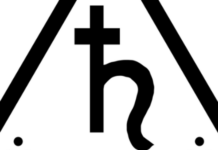 The comments section for “Sexism in contemporary occulture” and “Gender and the elements” flared up when they were originally published on Plutonica.net, and it became clear that the larger conversation is far from over. If you haven’t read these posts yet, they’re a good place to start.
The comments section for “Sexism in contemporary occulture” and “Gender and the elements” flared up when they were originally published on Plutonica.net, and it became clear that the larger conversation is far from over. If you haven’t read these posts yet, they’re a good place to start.
Two new essays have appeared recently on this theme, and they bear a closer look.
In an essay on Enfolding.org titled “Occult gender regimes: Polarity and Tradition,” Phil Hine gets to the heart of what makes so many uneasy broaching the subject in the first place. He writes,
the very act of questioning the inevitability of gender polarity is a radical step – and one which potentially shatters the foundations of the occult implicit-order – itself a reification of the wider gender-order of Western Culture. Gender polarity is often reified in occult texts as an earthly reflection of cosmic or otherwise essential principles – which are held to be inevitable and juridical (“Laws”). Frequently it is asserted that gender polarity is inevitable because it occurs on the “higher planes” or is a reflection of essential qualities of deities, archetypes, etc – it is universal and timeless – part of an unchanging/unbroken tradition which has only been challenged very recently…
Hine traces the origin sexual polarity to Aristotle via Plato, and the absurdity of enshrining these views in “tradition,” further shattering the idea that these ideas represent some “unbroken” mystic tradition. It’s good stuff.
The latest issue of Rending the Veil features an essay by Leni Hester titled “Further Thoughts After the Women’s Voices in Magick Panel at Pantheacon 2010.” In it, Hester discusses her experiences and those of her fellow panellists:
All of us have had to deal with criticisms that our hobbies, interests and life’s work, were not “natural” for women. These are not the attitudes of conservative family members, but rather those of our contemporaries and magical peers. We were told that there was something exotic, unusual, or just flat wrong about a woman Thelemite or Chaote. In those circles, we were either tokens or dupes. We’ve been told that we were doing our magick “incorrectly.”
Uncomfortable as it may be to hear, these are the realities many (most?) women face in contemporary “western” occulture. What this seems to break down to for these “peers” is that women should remain socially and sexually subservient to men. The excuse? When not bowing down to recently invented traditions, it’s the oft-repeated, never validated “because that’s ‘how it is in nature.'” Yeah, that old chestnut.
She writes:
It is one of the more demoralizing tricks of the dominator paradigm to take the entire range of human enterprise, experience and emotional potential, divide it in half, give half to one gender and half to the other, and then expect whole, integrated adults to emerge. The most ancient, and truest, magical injunction remains: Know thyself. We cannot be fully human if we accept the limitations of dominator gender roles without question or complaint. As women magicians, we all had felt at some time pressured to abandon our magick in order to conform to someone else’s vision of what a woman should be. Rejecting those values is part of our commitment to our magical work.1
It is so important that we continue to challenge these notions of gender, what it means for ourselves, our partners, peers and how it determines our relationships and interests.
Occulture remains mired in dated and ultimately meaningless sex and gender references dating from less enlightened times. Again I must ask, why do so many insist on pretending they’re relevant today?
First published on Plutonica.net 10 May 2010.
Image credit: Marc Falardeau.








